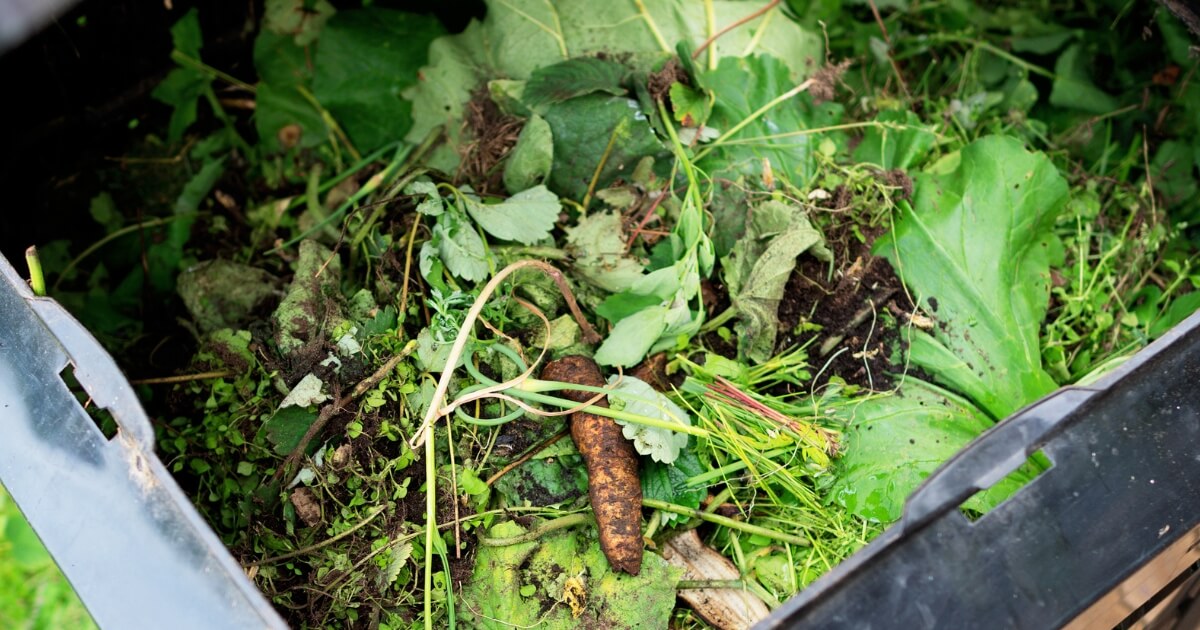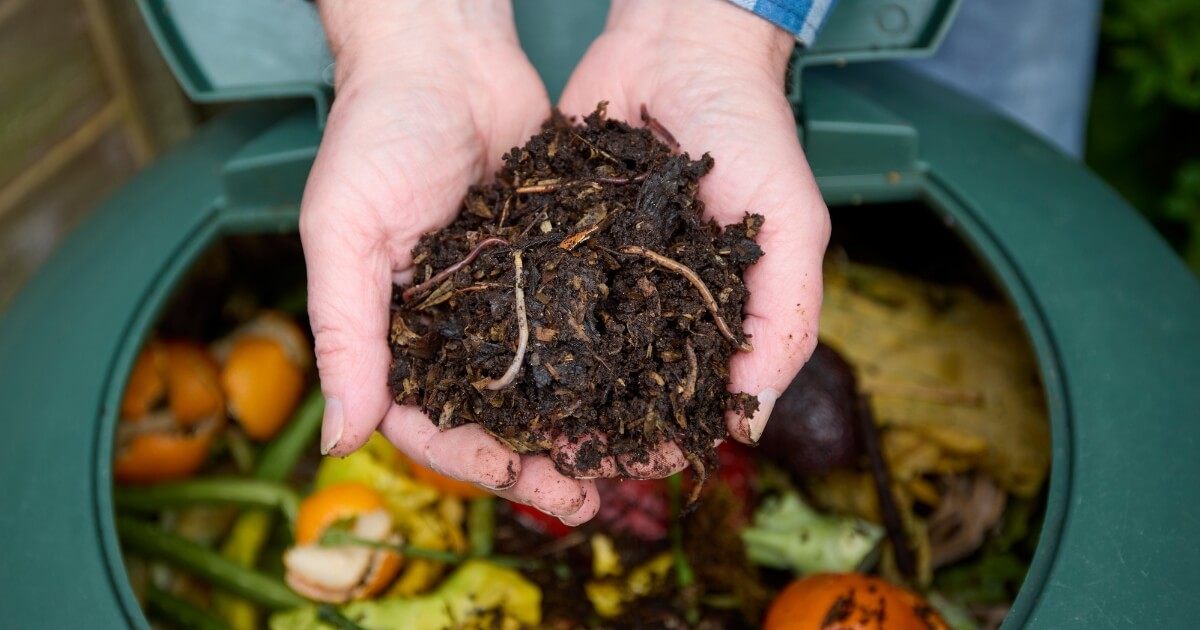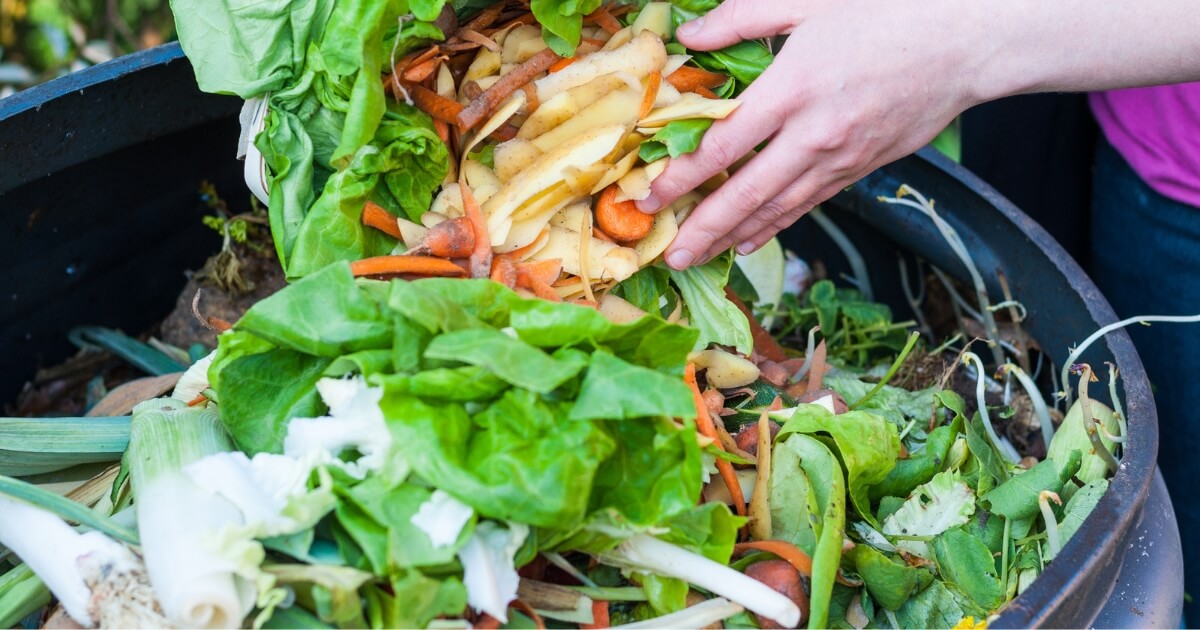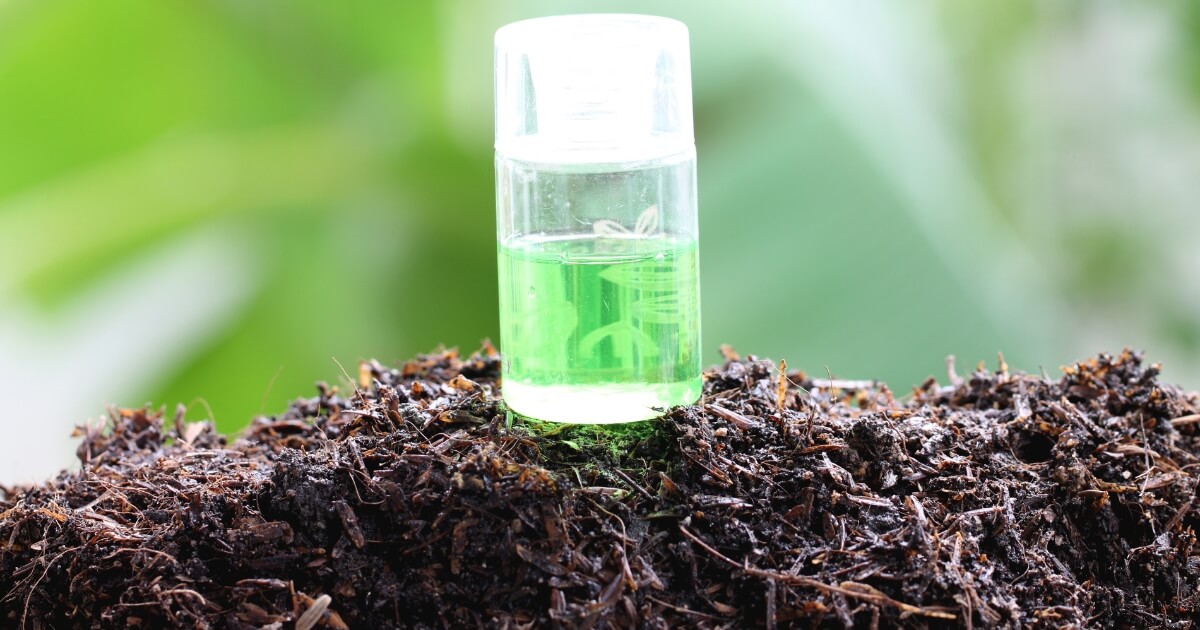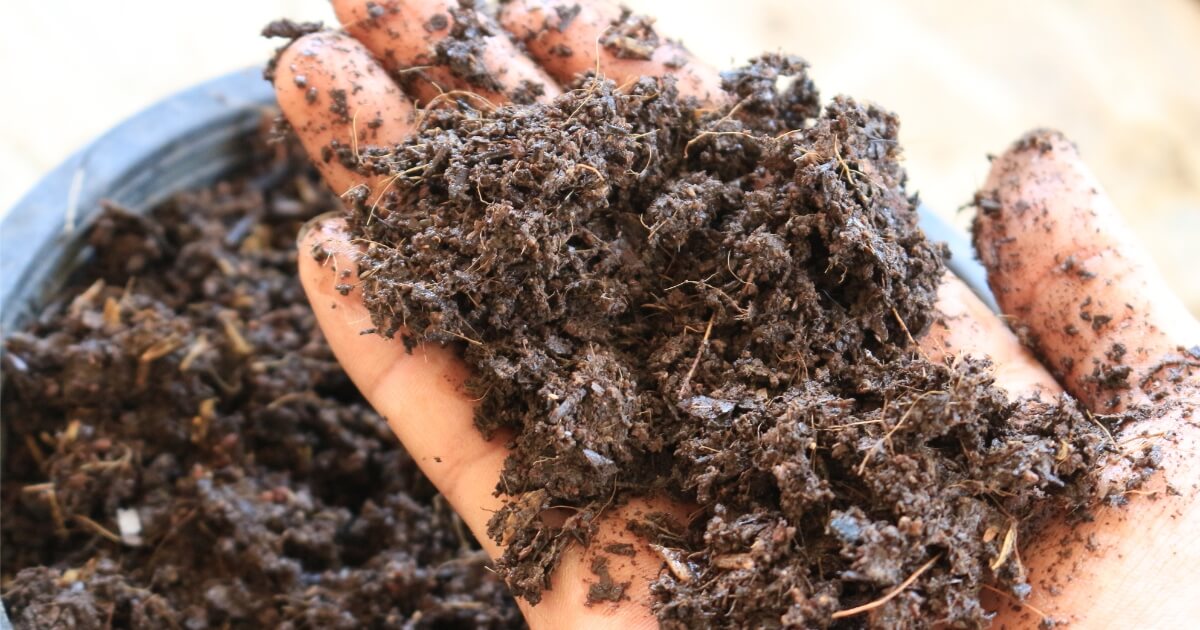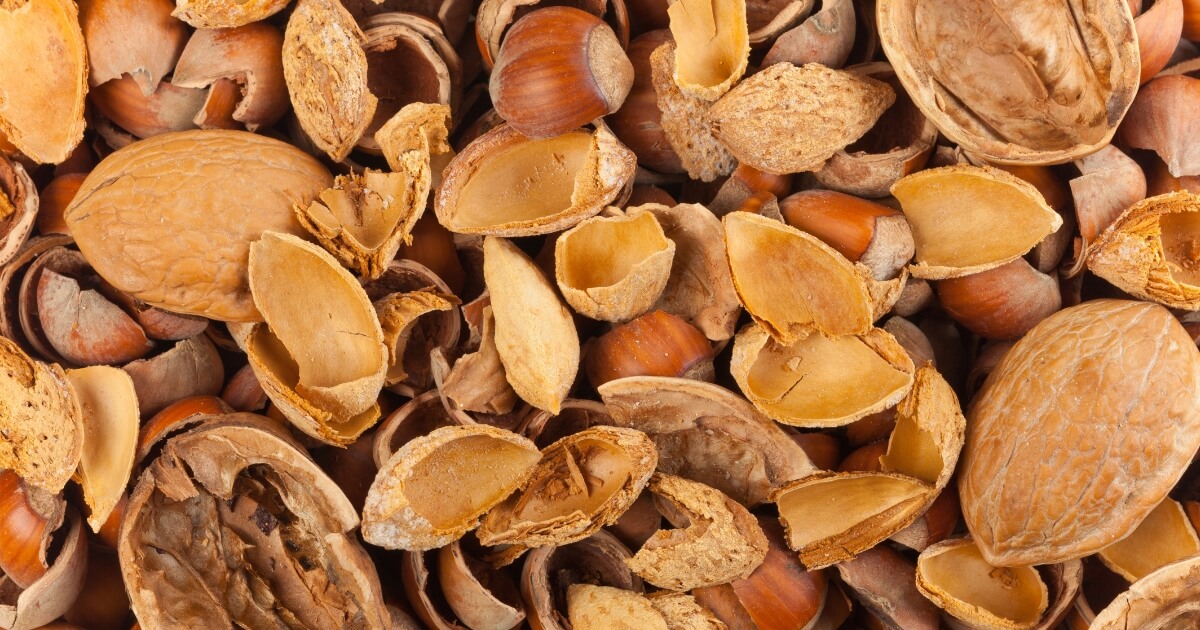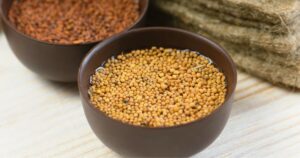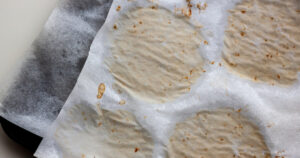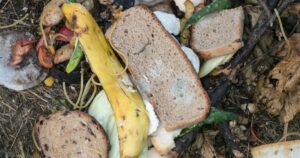Coffee grounds are fantastic for composting. They are a nitrogen-rich component that energizes the composting process, helping to create a rich, fertile soil amendment for your garden.
They break down quickly and are a smart way to recycle what might otherwise be waste. It’s a simple process: after brewing your coffee, you add the grounds to your compost pile instead of tossing the grounds into the trash. But before adding them in, let’s review a few guidelines to prevent overwhelming your compost.
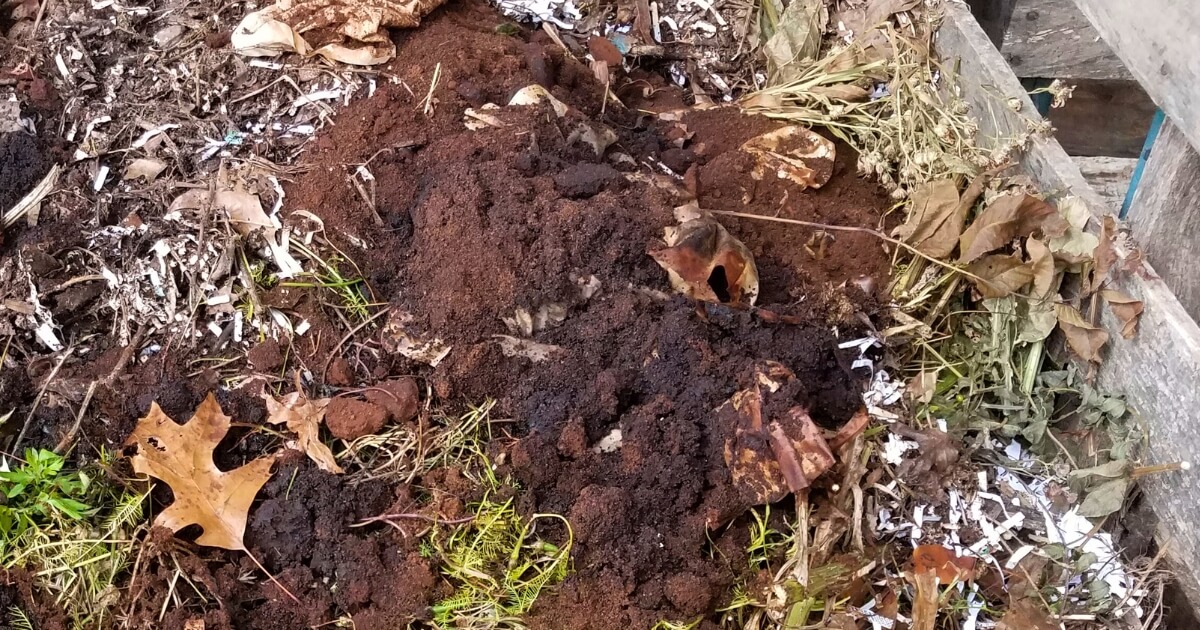
Are Coffee Grounds Compostable?
You bet they are! Coffee grounds are not just compostable but also beneficial to the composting process. The grounds provide a nitrogen source (green compost ingredient), an essential element that helps heat up your compost pile and speed up the decomposition process.
Oh, and despite their color, coffee grounds are classified as a green compost material due to their high nitrogen content.
Oh, and despite their color, coffee grounds are classified as a green compost material due to their high nitrogen content.
And what about composting coffee filters? Well, most filters are made from natural paper fibers and can be composted along with the coffee grounds.
Just make sure that they’re not bleached or contain synthetic fibers, as these can take longer to break down and might not be as friendly to your compost or garden.
Benefits Of Composting Coffee Grounds
Coffee grounds are rich in nitrogen, which is a key player in leafy plant growth and acts as a protein source for the microbes breaking down organic matter in your compost. But the goodness doesn’t stop there.
Coffee grounds also contain potassium and magnesium, both of which are important for overall plant health. Potassium aids in flower and fruit development, while magnesium is a central component of chlorophyll, helping plants capture sunlight for photosynthesis.
If you want to make some wriggly friends in your garden, adding coffee grounds to your compost is like throwing a party for earthworms. These little guys love coffee grounds!
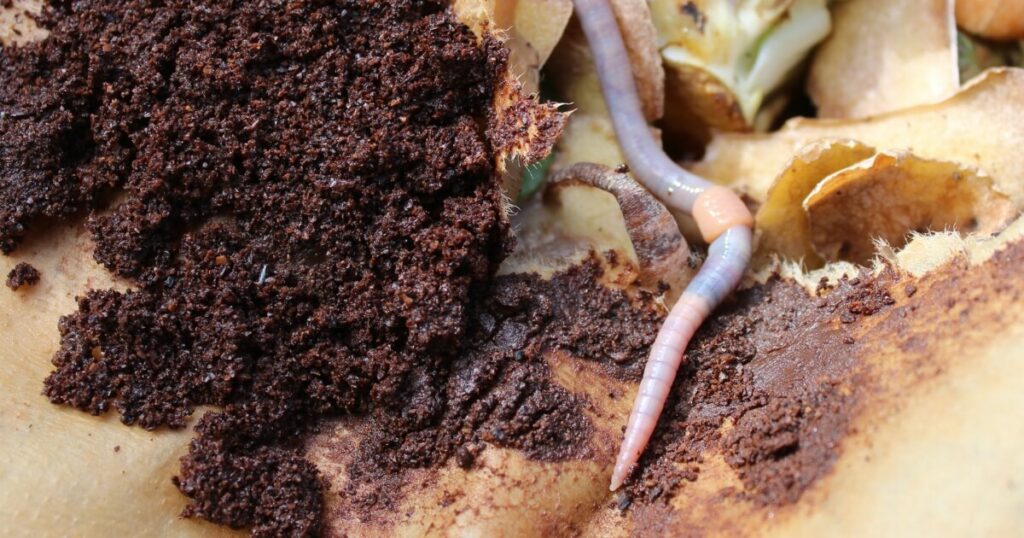
Worms are fantastic for your compost because they break down organic material and leave behind worm castings—basically, superfood for your plants. Plus, their tunneling aerates the compost, providing oxygen to those hard-working microbes.
Not all creatures are fans of coffee grounds, though. Some insects and animals find the smell and texture unappealing, making coffee grounds a natural deterrent.
For example, slugs and snails tend to avoid areas treated with coffee grounds because the caffeine can be toxic to them. Cats also dislike the scent and might think twice before using your garden as their personal litter box if you’ve sprinkled some coffee grounds around.
And here’s something else that’s interesting: studies have suggested that using coffee grounds in your compost could help suppress certain plant diseases.
The compounds found in coffee have antimicrobial properties that can inhibit the growth of disease-causing pathogens in the soil. This means healthier plants and less reliance on chemical interventions to keep them thriving.
How To Compost Coffee Grounds
Follow these simple steps to turn your coffee leftovers into garden gold:
- Collect Your Coffee Grounds: Start by setting aside your used coffee grounds. You can keep them in a container near your coffee maker for convenience.
- Balance with Browns: For an effective compost, you need a good mix of greens (like your coffee grounds) and browns (dry leaves, paper). Aim for a ratio of about 1 part greens to 3 parts browns.
- Mix Them In: When you have enough coffee grounds, take them to your compost pile or bin. Sprinkle the grounds evenly over the top.
- Layer Wisely: Add a layer of brown material after each addition of coffee grounds. This will help maintain the balance and aid in proper aeration and decomposition.
- Give It a Turn: With a shovel or compost turner, gently mix the new additions into the existing pile to distribute the materials evenly and help speed up the composting process.
- Keep It Moist: If it’s too dry after adding coffee grounds, give it a light sprinkle of water.
- Repeat as Needed: Keep adding coffee grounds regularly but in moderation.
- Be Patient: Over time, those microorganisms will do their thing, breaking down the contents into dark, crumbly goodness that your garden will love.
Remember to avoid dumping large amounts of coffee grounds all at once. They can clump together and slow down the composting process.
Problems With Coffee Grounds In Your Compost
When it comes to composting coffee grounds, there’s a bit of confusion about their acidity. Some folks worry that adding coffee grounds will turn their compost pile into an acidic hotspot unsuitable for plants.
While coffee is acidic, the grounds are pretty close to neutral in pH once brewed. So, the myth of creating an acid compost heap? It’s largely unfounded.
Now, let’s tackle mold. You might notice some white fuzzy stuff on your coffee grounds when they sit around too long before getting to the compost bin—that’s mold. It’s not a deal-breaker for your compost, but too much can be problematic.
To prevent mold growth:
- Store your grounds in a well-ventilated container before adding them to the compost.
- Mix them into your pile promptly instead of letting them sit on top where they can get moldy.
- Make certain that you have enough brown materials in your mix to absorb excess moisture, which mold loves.
FAQ
How Long Does It Take For Coffee Grounds To Decompose In Compost?
Coffee grounds decompose relatively quickly in a well-maintained compost pile, usually within a few months, depending on the overall conditions of your compost.
Can I Add Coffee Grounds To My Compost All Year Round?
Yes, you can add coffee grounds to your compost throughout the year. Just balance them with brown materials and maintain proper compost conditions no matter the season.
Do I Need To Rinse Coffee Grounds Before Composting Them?
No need to rinse them! You can compost your coffee grounds directly after brewing once cooled. Rinsing is unnecessary and could remove some of the beneficial nutrients.
Will Adding Coffee Grounds To My Compost Attract Pests?
While coffee grounds can deter certain pests, if not balanced with browns, they might attract flies or rodents due to their strong odor. Keeping them well mixed into your pile helps prevent this issue.
